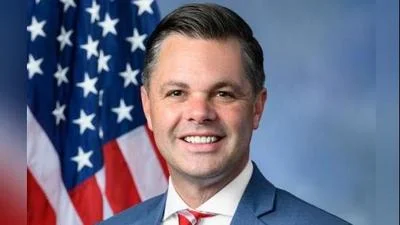U.S. Rep. Zach Nunn Representative for Iowa's 3rd District | Official U.S. House headshot
U.S. Rep. Zach Nunn Representative for Iowa's 3rd District | Official U.S. House headshot
Following recent arrests of Chinese nationals accused of smuggling deadly plant pathogens into U.S. research facilities, Representatives Zach Nunn and Josh Riley have introduced the Preventing Lethal Agricultural and National Threats (PLANT) Act. This bipartisan legislation aims to create a new criminal offense for knowingly importing high-risk agricultural biological agents, with increased penalties for those linked to foreign governments like the Chinese Communist Party (CCP).
Rep. Nunn emphasized the threat posed by such actions: “Smuggling deadly pathogens isn’t just reckless – it’s a direct threat to Iowa’s farmers and the U.S. food supply.” He noted that this incident highlights an evolving threat from hostile foreign actors targeting critical infrastructure and biosecurity.
The CCP has reportedly sought to undermine American agriculture through various means, including intellectual property theft and attempts to purchase farmland near sensitive military installations. The intercepted pathogen Fusarium graminearum, known for causing "head blight" in wheat and corn, is classified as a potential agroterrorism weapon by federal authorities.
Rep. Riley expressed concern over foreign entities smuggling dangerous biological agents into the country: “Foreign bad actors—like those tied to the CCP—shouldn’t be able to smuggle dangerous biological agents into our country.” He affirmed his commitment to protecting farms and ensuring national safety.
The PLANT Act aims to address these threats by criminalizing reckless or intentional importation of high-risk biological agents without USDA authorization, increasing penalties for those acting on behalf of foreign governments, and enabling law enforcement intervention before significant harm occurs.
This legislation follows past incidents like the 2011 case where a Chinese national was charged with economic espionage after stealing seed samples in Iowa. Such cases underscore ongoing threats against America’s agricultural innovation.
###





 Alerts Sign-up
Alerts Sign-up